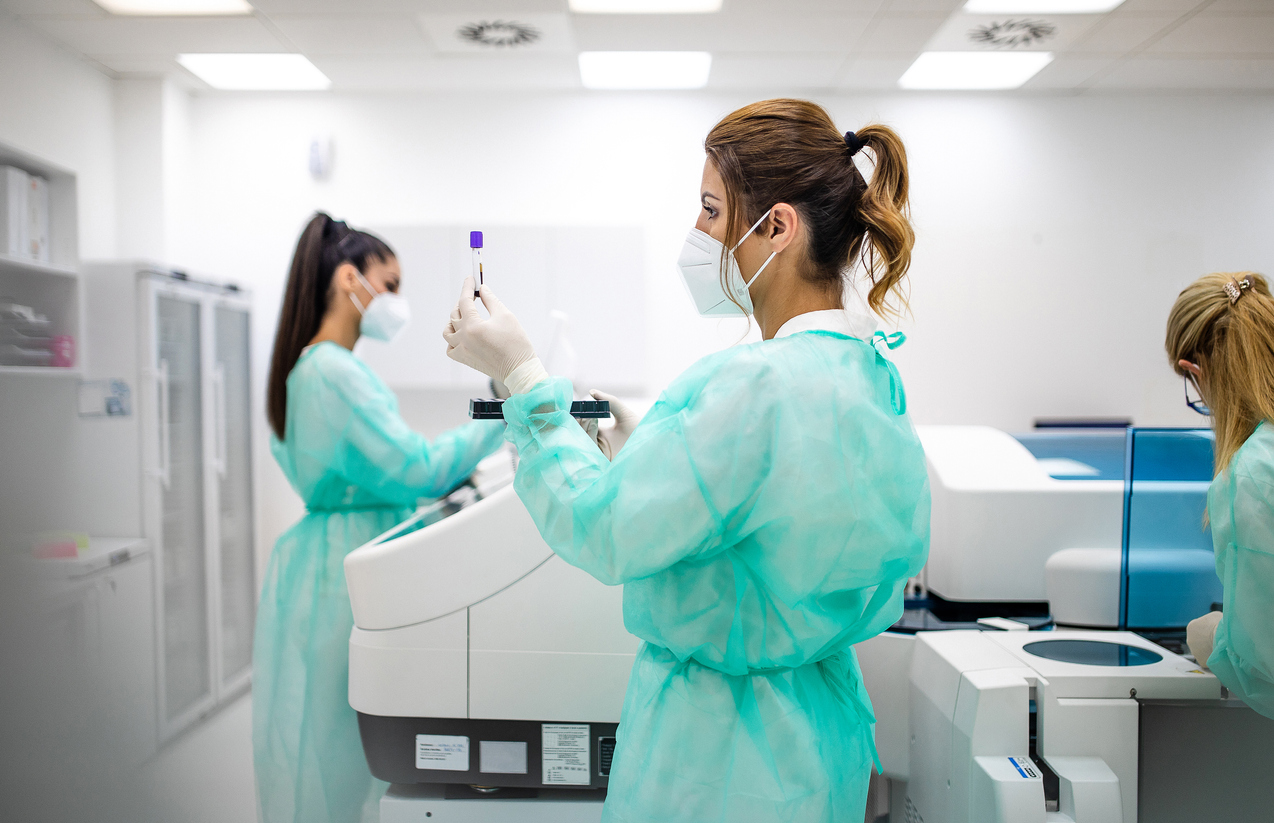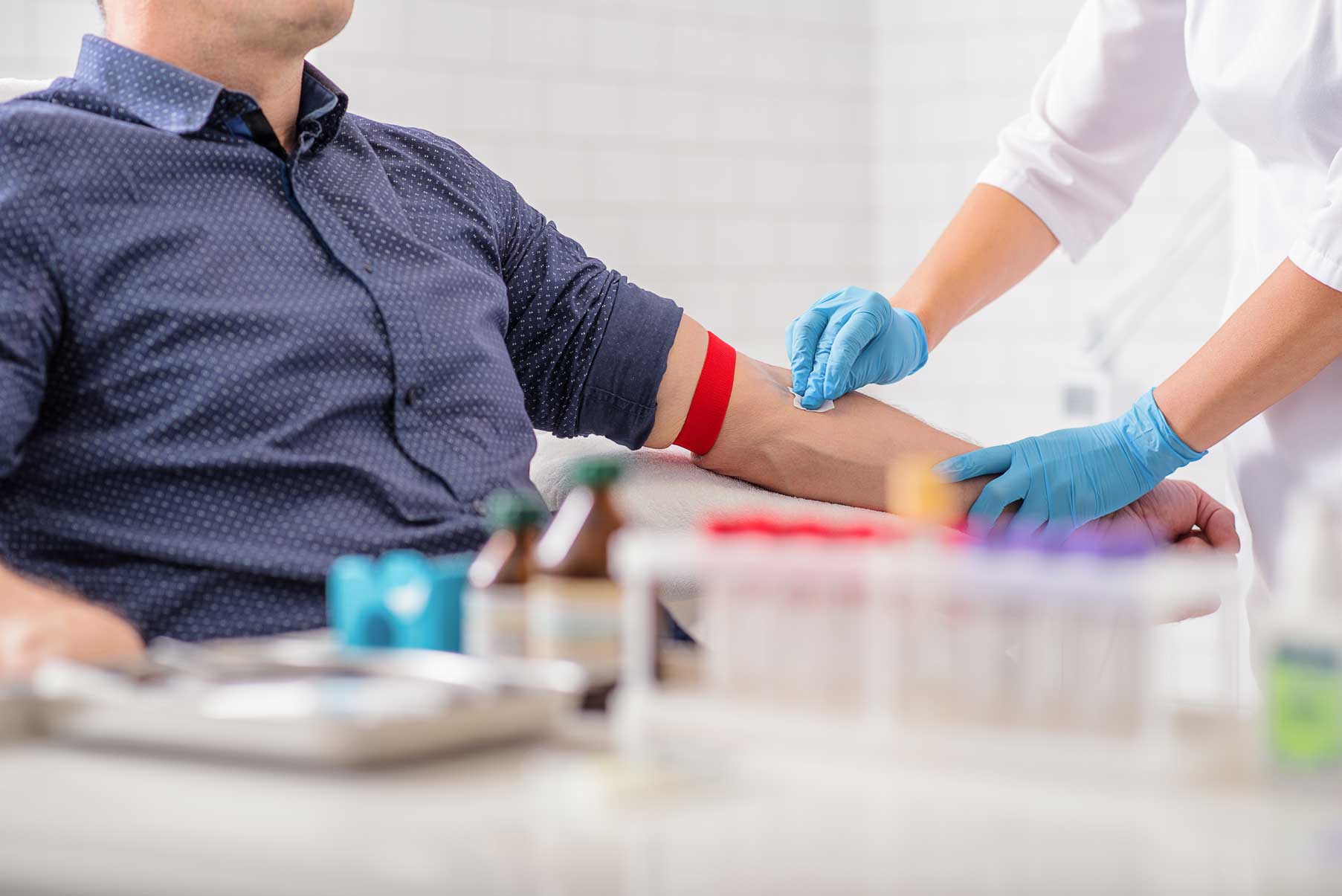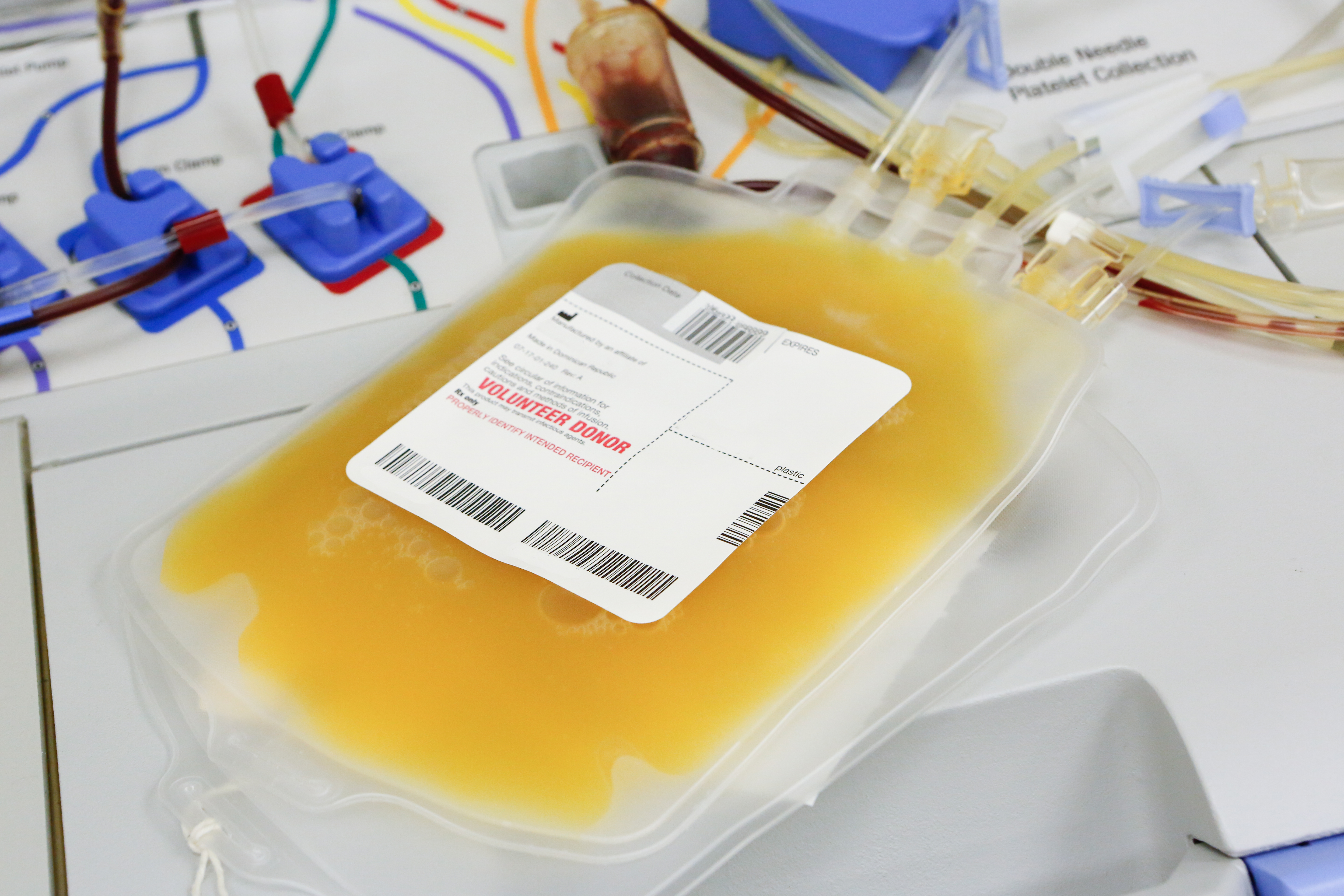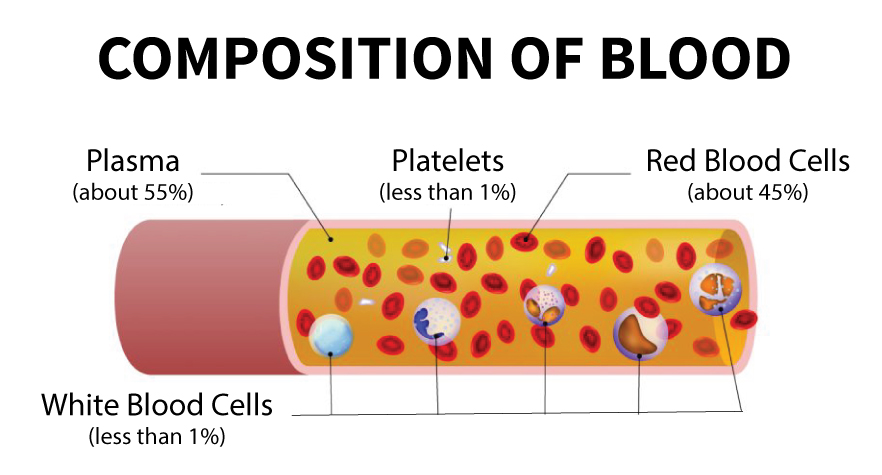
September 19, 2022 at 10:17 am
Published by Krista Thomas | Communications Strategist
While plasma had been transfused as part of whole blood for hundreds of years, the specific value of plasma became acutely clear as a result of the devastating violence of WWII. Though plasma could not replace lost red cells and...

May 6, 2021 at 8:22 am
Published by Stanford Blood Center
By Harry Sussmann, Operational Excellence (OpEx) Director On April 28, Stanford Blood Center became the first blood center of its size in the nation to use pathogen reduction technology, or PRT, on 100% of its transfusable platelets produced. With this...

January 10, 2018 at 6:58 pm
Published by Alex Hicks | Communications Strategist
Most of you probably know that when you donate blood products, they test for your blood type (A-positive, O-negative, etc.). But you might not know that when you donate platelets, they test for an additional type — your HLA type....

August 30, 2017 at 5:31 pm
Published by Stanford Blood Center
In 1989, I was the victim of a serious motorcycle accident. My left leg and hip were seriously injured – I suffered from a broken hip socket, compound fractures of my tibia and fibula, and other issues. I spent a...

July 27, 2017 at 6:12 pm
Published by Alex Hicks | Communications Strategist
Welcome back! As discussed in last week’s blog, Platelet Donation 101, those who have been previously pregnant will need to be tested for HLA antibodies (a simple tube draw that can be performed during a regular whole blood donation) and...

July 19, 2017 at 2:27 pm
Published by Kristin Garcia | Digital Marketing Project Manager
As some of you may already know (and some of you may not!), you can actually donate more than one type of blood product. When you think about blood donation, most people probably first think of whole blood (when a...

December 2, 2015 at 3:13 pm
Published by Kristin Garcia | Digital Marketing Project Manager
When most people think about making an appointment at Stanford Blood Center (SBC), they think of coming in to donate whole blood, the most common type of donation. Less common, but needed just as much, is platelet donation through apheresis...








